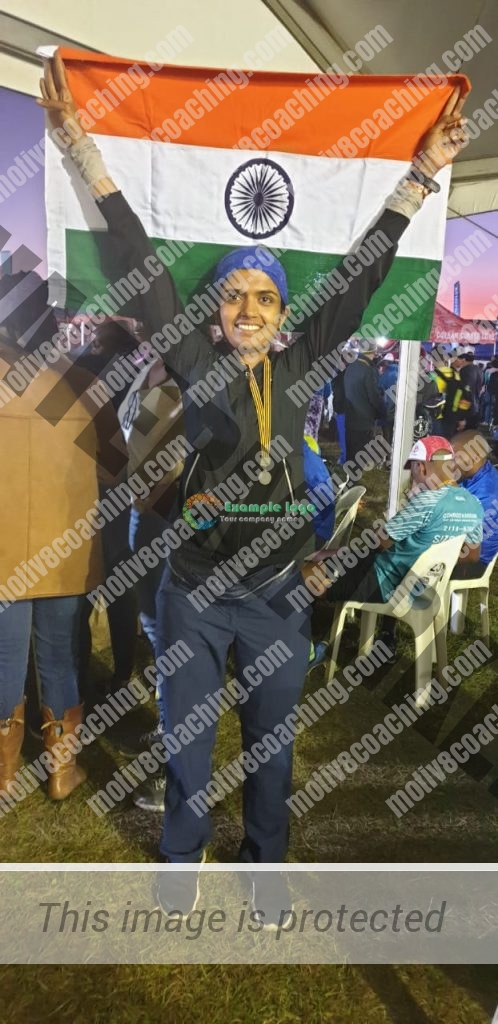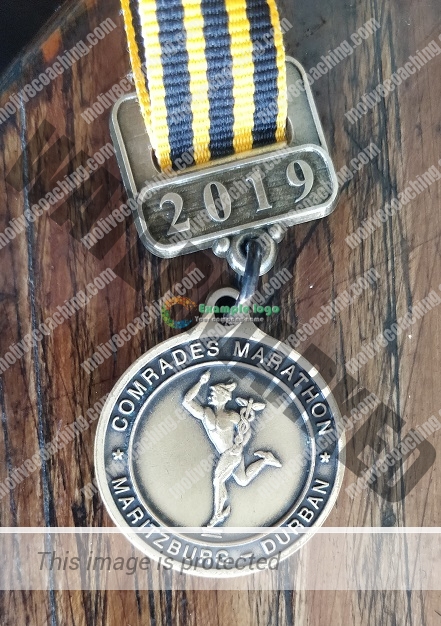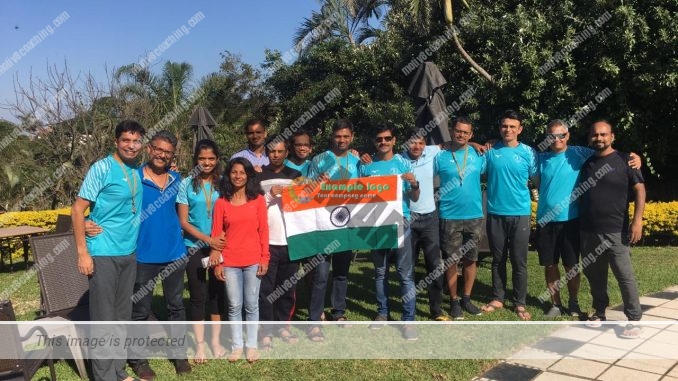race report by Samrudhi Kulkarni
On June 9, 2019, I attempted the Comrades Marathon, running the “up run”, from Durban to Pietermaritzburg.
It was a dream come true! I completed with a timing of 10.46 and bagged a Bronze medal!
At the finish
Until I crossed the finish line, I honestly didn’t know what to expect out of my performance. I was confident that I could finish, but, to be honest, I had no idea how racing would feel after 65km. Although I had trained for nearly six months or more for the race, and I had done 4 ultras runs (1 official ultra, 3 practice runs over 50km) of a distance longer than 42km, but that experience was far from exhilarating.
The Comrades is just a bit more than twice the Full Marathon distance, and the “up” run has nearly 3000+ feet of climbing, as well. In the end, completing the race was one of the most awesome experiences in my life – one that will have me coming for back to back Comrades race in 2020.
The Comrades is several orders of magnitude more awesome than any road race I have ever run in India. First of all, the challenge of running Comrades is simply hilluriouse; it is, by far, the most challenging race I have ever run, physically and mentally.
The motto of the 2019 Comrades was Sizonquoba (“together we triumph”). Nothing sums it up better than that.
The support along the course is incredible; not only is it consistent for 87 kilometers, but the race takes you through all kinds of walks of life, showing the many colors of the Rainbow Nation.
The bronze medal I bagged
From the start of the race—with 25,000 runners singing the South African national anthem followed by “Shosholoza” – through the grueling last stretches of the race, where fellow runners were encouraging each other on over the tough parts of the course and the hills, the Comrades brings everyone together—across South Africa and across the world, like no sporting event I have ever seen.
Some observations
Unlike many road races, the Comrades is timed as a “gun to mat” race — the clock starts for everyone at the starting gun, and stops when you cross the finishing mat. This means that if you are stuck behind thousands of runners at the starting line, all of the time it takes you to cross the starting line counts in your final time.
The race started at 5:30 a.m., but I was at the venue by before 4:30 a.m. and in the section itself before 5 a.m. My seeding was G and it took 7-8min to cross the mat. It doesn’t matter and is pointless to count the hills, for several reasons—one is that you’re continually climbing anyhow. another may be it is psychological.
The main benefit of knowing that you’ve climbed this hill or that one is knowing that you’ve conquered one of the “infamous” challenges, but as I discovered later in the race, the hills that often bite the most are the ones that have no name at all.
An incidence
After some stretches of incline, probably after Inchanga, someone came up behind me and said “Don’t panic, go easy, you have the Bronze”. This kind of injected power in me.
Lastly
Before highest point, when seeking advice from veterans, several runners gave me the advice of “get over Pollys any way you can”. In my preparation, I figured that I was a strong runner with good training and that Pollys, Botha’s and what not are just small hills that I would have no trouble conquering. After all, I’d run bigger hills in Pune several times!
Takeaway from the race
The main “big” takeaway that I came to appreciate—not only over the half year of training, but over the course of the race itself—is the importance of consistency.
Preparation
You cannot wake up and decide you’re going to run the Comrades. You can’t even wake up three months before Comrades and decide you’re going to run, assuming you want to do well. The training is cumulative, and consistency is important. It is easy to make excuses about the conditions and why it doesn’t make sense to do a training run. *Consistency is probably the most important approach to adopt during the race itself*
Word of caution
You often hear about marathon runners who go out too fast at the start of the race and pay the price later on in the race; in fact, a veteran at the starting line explicitly warned me not to be one of those runners, and that helped. Some other parts of betting from Pune also helped too.
Pacing strategy
When people asked me about my racing goals before the race, I said I had no idea how it would go, so I just hoped for consistency and a strong finish, achieving coach’s target.
Other ‘I’ things
- I am a vegetarian, eat eggs almost three daily.
- There is no special diet that I follow, I eat less in dinner, eat lot of bananas, veggies, beetroot.
- I have never felt cramps anytime during race or even in training.
- I keep myself motivated other than running ,with friends, being busy at work, playing with kids , and shopping.
- I don’t do anything extra other than Friday Strength training, with a 5kg weight.
- I get quality sleep for 5hrs-6hrs
- I train under my coach Atul Godbole of Motiv8 Coaching.
- I was supported during my training by other great runners from Pune from Team Motiv8.
All the Comrades runners from Team Motiv8
#sizonquoba #Together_We_Triumph


